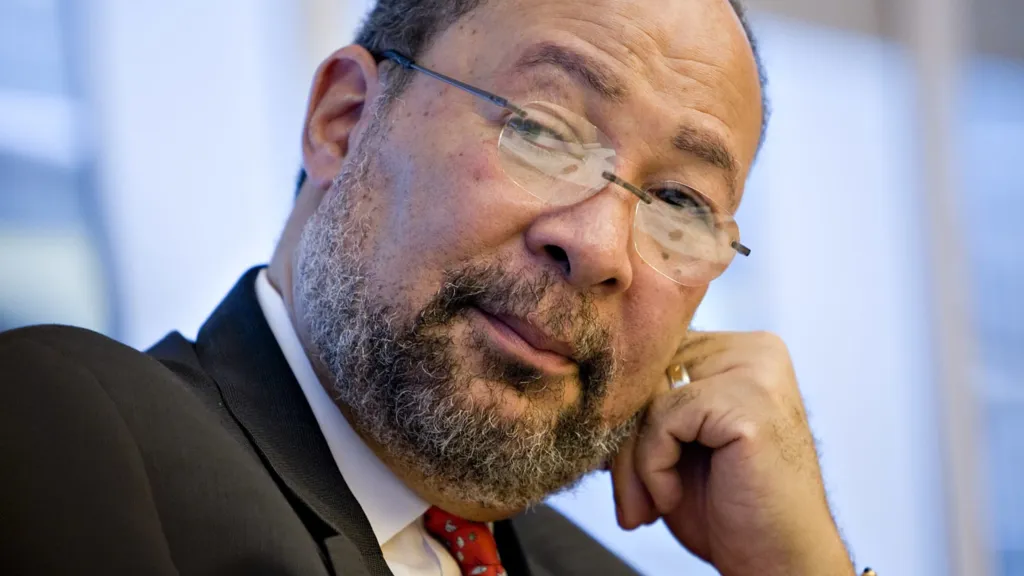Former New York City Mayor Rudy Giuliani, left, and Richard Parsons, CEO, Time Warner Inc. chat at the media welcome party hosted by Time Warner before the Republican National Convention in New York, New York on August 28, 2004.
Parson's clients included Rockefeller's widow, Happy, and the Dime Savings Bank of New York. In 1988, he accepted an offer to head Dime Bancorp, which had been struggling through the savings & loan crisis after aggressively approving high-risk mortgages as housing prices crashed. In 1989, it posted a $92.3 million loss. By the end of 1993, after ordering massive layoffs, Parsons helped the bank complete a $300 million recapitalization. In 1995, he helped engineer Dime's merger with Anchor Savings, creating one of the nation's largest thrift institutions.
Parsons joined the Time Warner board on the recommendation of Rockefeller's brother Laurance. He became president of Time Warner in 1995.
As a Rockefeller Republican, Parsons considered himself a fiscal conservative and a social liberal. Parsons worked for Giuliani's campaign for New York mayor but kept a behind-the-scenes profile. ''I didn't want to be positioned as the Mayor's Black guy,'' he told the Times a few years later.
Giuliani put him in charge of the mayoral transition team in 1993 but Parsons turned down an offer to become deputy mayor for fiscal affairs. His relationship with Giuliani later soured after the mayor tried to pressure Time Warner Cable to carry the then-fledgling Fox News Channel in New York.
Two years after stepping down from Time Warner, Parsons became chairman of Citigroup in 2009, helping to stabilize the banking giant in the wake of the financial crisis. In May 2014, he was named interim CEO of the Los Angeles Clippers after the NBA banned owner Donald Sterling for life because he had made racist remarks.
"Like most Americans, I have been deeply troubled by the pain the Clippers' team, fans and partners have endured," Parsons said.
Parsons played down race as a factor of his success.
"For a lot of people, race is a defining issue. It just isn't for me," he told the Times in 1997. "It is ... like air. It's like height. I have other things that I'm focused on.''
He later came out of retirement to briefly serve as CBS chairman in the wake of Les Moonves' ouster following sexual harassment and assault allegations during the #MeToo movement.
After only a month as CBS' interim chairman, Parsons stepped down suddenly in October 2018, citing health concerns.
"When I agreed to join the board and serve as the interim chair, I was already dealing with a serious health challenge -- multiple myeloma -- but I felt that the situation was
